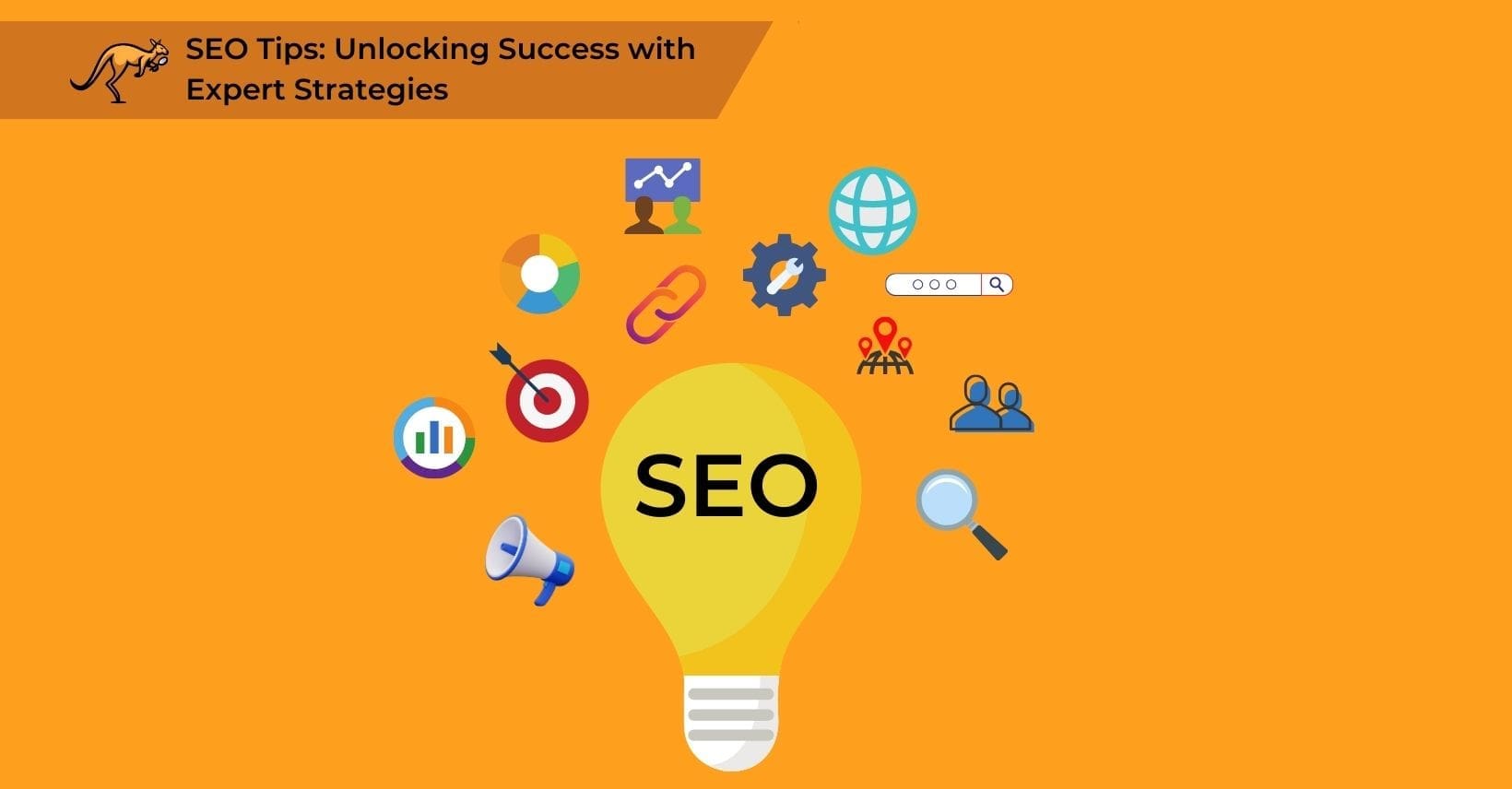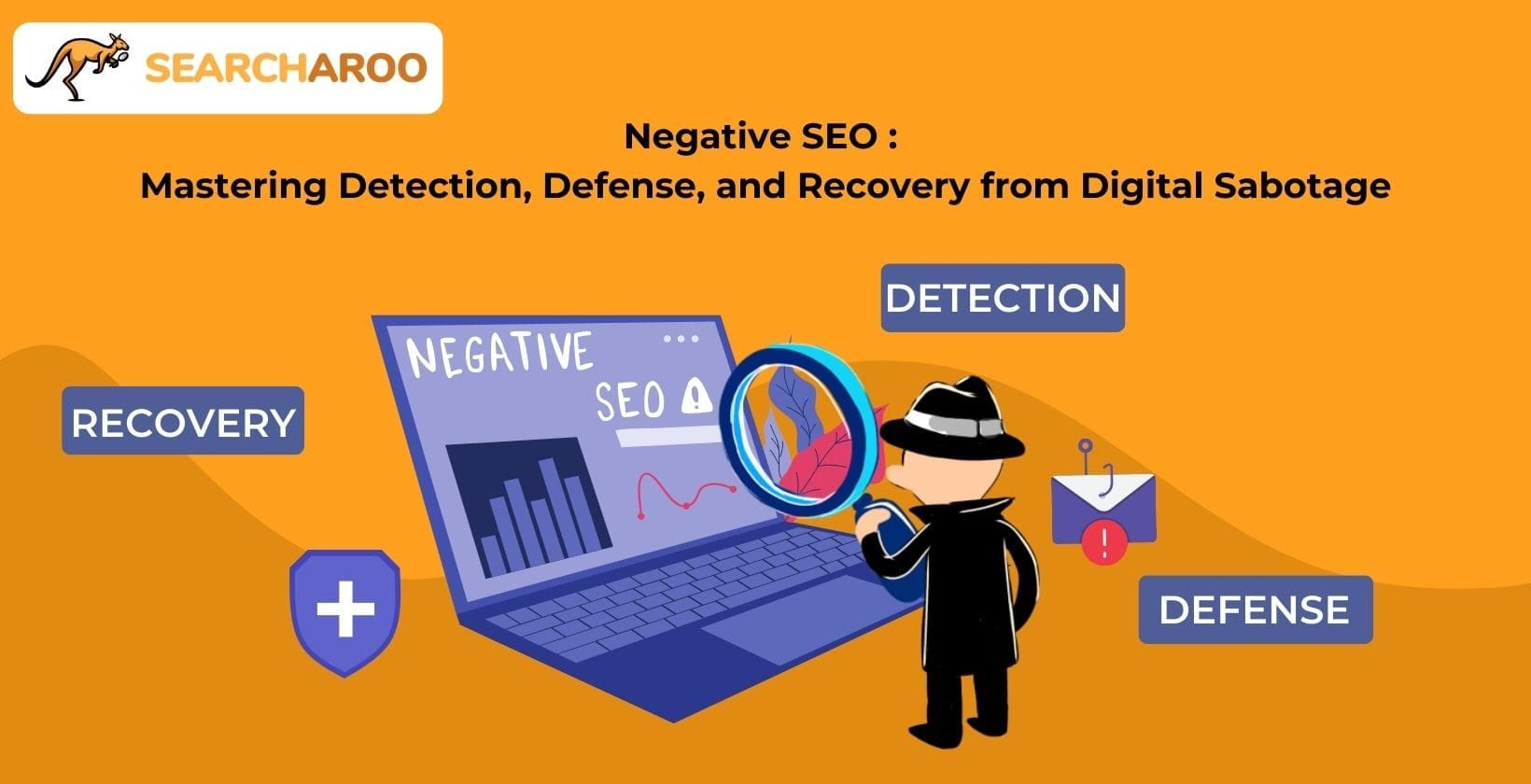Google stands as one of the most popular search engines in the world. This prominence makes Google a prime marketing platform online.
A higher rank on Google boosts visibility and draws more attention to your business or website.
More visibility means more potential customers and clients, even with basic marketing techniques.
However, higher Google rankings require effort. With many competitors vying for the same benefits, brute-forcing your way to the top is not an option.
Instead, a strategic approach is essential. Google’s vast platform operates on rules and algorithms that can be leveraged to your advantage.
Careful planning is important for improving Google rankings and appearing in more search results.
Understanding these strategies is key to navigating the competitive landscape of search engine optimization.
This naturally leads us to explore what factors influence Google rankings and how you can optimize for them.
What are Google Rankings?
Google search rankings determine your website’s visibility in search results, often on a per-term basis. If your website ranks high for business-related terms, you are more likely to appear on the first page of search results for those terms.
This means you can improve the rank of specific web pages to make them more visible for particular keywords, helping you reach your target audience effectively.
This process is the essence of Search Engine Optimization (SEO). S
EO is needed for any business to establish an online presence, especially for new companies without previous ties to significant work or products.
Achieving a high ranking involves various elements that affect how search engines determine the placement of your site.
What affects search results rankings?
Google evaluates web pages by taking each ranking factor into account. This includes things like:
- Overall quality.
- Relevance.
- Loading times of web pages.
- Optimization.
These are just a few ranking factors, but they are the easiest to explain without getting into the complexities of Google’s algorithm.
Remember that Google frequently updates its algorithm to prevent exploitation, requiring regular adjustments to your strategies.
You can’t rely on a single approach indefinitely.
Achieving higher rankings on Google involves significant trial and error; even top marketers don’t fully grasp the process.
Ranking Higher on Google

To rank higher on Google, it’s essential to understand and utilize the available tools and strategies. Remember that each site is unique, so what works for one may not work for another; flexibility is key.
Below is a comprehensive overview of common methods to enhance your search engine rankings and some less common strategies to improve your position in Google’s ranking algorithm.
Choose The Right Keywords
SEO is dependent on keywords. A keyword is any term you want to use to market yourself: when somebody looks that keyword or key phrase up, you want to appear in the search results.
This makes proper keyword research vital for your overall SEO efforts.
You need to consider your target audience’s search intent, the terms that relate to your business or services, and which target keyword you might want to focus on the most.
Keyword research can take many forms. Many businesses actively participate in keyword research by examining their competitors’ rankings. In contrast, others ignore most higher-level keyword research and use common sense to choose a target keyword list.
Proper keyword research is always worth it. Tools like Google Keyword Planner provide an easy way to narrow down a target keyword list without risking making as many mistakes. Marketing your site to the right places becomes much harder without good keywords.
Take Link Building Opportunities
Link building is one of the most powerful tools in your arsenal if you use it correctly.
Backlinks—links coming to your web page from other websites—can be extremely versatile and greatly contribute to your overall SEO goals.
Link building can take a lot of forms. You might decide to put guest content on another site or pay a blog to link back to you in existing content.
However you end up doing it, a good-quality link pointed at your website transfers some “page authority” and “domain authority” – a vague but useful ranking factor.
Google promotes pages that receive a lot of links as long as those links come from good sites.
Securing high-quality backlinks from authoritative and relevant sources is needed for improving your website’s credibility and search engine rankings.
These high-quality backlinks drive more traffic to your site and signal to search engines that your content is valuable and trustworthy, boosting your website’s visibility and authority.
This ensures that important resources rank higher on average. Still, it also means you can start ranking higher by using link building to bolster your business’ SEO.
By gathering your link profile and using link-building effectively, you can improve your Google ranking by having other sites link back to you.
Suppose your site offers something worth linking to, like a list of important resources. In that case, you might even earn backlinks organically without asking for them.
Anchor Text

Relevancy is vital across all areas of SEO, and that applies to links as well.
Links in content relevant to your products or services will make a bigger impact than getting links in unrelated content.
Anchor text gives links additional context and SEO potential.
The anchor text is whatever text the link is placed onto. It should usually be phrases including related keywords—or your business name if you want to simplify things.
Good anchor text will do more than just bolster your SEO. It also provides that link with more context.
It can make it flow with the text around it more naturally, allowing you to put links into a blog post without making it feel like an advertisement.
Even if you offer the services they want, nobody wants to know they are being advertised. The more obvious you make it, the more annoyed they could become, and obnoxious ads have killed many small businesses.
Being careful with your anchor text and fitting the links perfectly into your SEO content can drive more traffic since more people will likely use the link out of curiosity.
This organic traffic is always a nice benefit, even if it is not your main focus with SEO.
Guest Blogging and Paid Links
Placing paid links on other sites is one of the easiest ways to spread your business’ name.
Paying for links can initially seem strange to people not antiquated with SEO. Still, the humble paid link is one of the foundations of all link-building actions within the SEO world.
Approaching another site gives you multiple options for paid links. You might pay to write and post your article on their site or even pay them to write it.
In other cases, you can pay a site owner to replace a dead link with one to your website or to retroactively add a link to your content in some of theirs.
This will never have a 100% success rate, and some site owners hate taking on paid links.
However, many others see it as an easy way to earn extra money without doing much work, making it a quick and relatively cheap way to acquire a new link.
Remember, you want a link from a good site, not just a random niche blog.
This means examining the blog’s overall authority and relevance to your content and its impact on your SEO overall.
Paid links are a very effective tool and should always be considered when evaluating your SEO options.
While free tools and non-paid link options can work, paid links will always be a reliable safety net that you can use as the core of your SEO efforts.
Internal Links
Many people do not realize how important internal links can be. While they are mainly used to improve on-page SEO, on-page links can also be useful navigation aids affecting how search engines treat your site.
It is important to remember that search engines judge sites based on various factors, including their quality and ease of use.
Having internal links to navigate your site quickly can make users more comfortable getting between pages, improving your SEO.
If users visit your site but can’t find any way to find the details or products they want, they will likely leave.
Even if your site matches search intent and has a high click-through rate, that means nothing if many of your users simply leave within one or two pages.
A good network of internal links makes navigation easier, ensuring users can find the pages they want.
Create Good Content
While this might initially sound obvious, creating high-quality content is not easy.
Everybody wants their website to be of higher quality. Still, your understanding of quality might not match that of search engines like Google.
Even massive brands like Apple, one of the dominant tech companies in the world, have struggled in places due to not producing good enough content.
Quality is important whether you are writing long-form content or something much shorter. You want to write content that offers some value to your target audience.
Avoid copying directly from other sources, and ensure your content reads well, even if it is a one-shot article.
Formatting, wording choices, length, and the overall focus of the content are also important. Suppose you write something disjointed with no clear point.
In that case, your SEO will suffer if you try incorporating that content into your overall strategy.
Google rewards effort and punishes attempts to cheat the system.
Once you have good content prepared, you can add “hidden” keywords to tie it into your SEO strategy.
The right keyword phrase integrated into the text and effective link-building strategies can benefit site SEO significantly.
Relevancy
Content needs to be relevant. While this might sound obvious, especially since relevant links are so powerful in SEO, it is easy to overlook some details that might mess up your content’s overall power and effectiveness.
Relevancy is difficult to achieve if you are trying to vary your content.
For example, let us say you sell sports equipment.
While you can write many articles about sports events that make it easy to promote your products, you might eventually try to branch out into other markets or want to promote a specific product or service.
If this happens, you must find a way to keep the content relevant.
You can’t just put an advertising link to some sports gear into an article about cats and expect results. This can reduce your Google rankings for spam if Google deems it a problem.
You need to match the search intent of your customers while still keeping links relevant.
This means crafting content that can hold links properly without losing relevancy.
For example, you might create a blog post about more general clothing options and promote some of your sports clothing partway through or write articles about health that involve a small section about playing sports.
You do not need to craft high-quality content about the specific thing you are promoting; it needs to be relevant.
Relevant content will not only appear higher in the organic search results you are targeting but also draw in more visitors interested in what you offer.
This is the biggest reason to focus on relevancy at all costs: the more relevant you are, the more customers you will draw in.
If you rely on irrelevant terms, you will attract many visitors who simply do not want what you offer them.
These are people you can’t market to, and spending time and money trying to pursue them will only make your job harder.
Handle On-Site SEO
On-site work involves making changes directly to your site. Search engines rank sites based on how optimized and well-designed they are, so cleaning up your web page can make a big difference.
For example, optimizing code to load landing pages faster improves your ranking within Google’s algorithm and enhances the user experience.
Technical SEO changes boost your ranking and make your site more user-friendly, which is always valuable.
On-site SEO offers improvement opportunities, such as resizing images for faster loading or overhauling your navigational sidebar designs.
These small details significantly impact site usability and search engine handling.
Focus on reducing bounce rates and increasing customer retention, as search engines may penalize sites that fail to retain traffic.
Ensure your site is fully usable, especially on mobile devices, as many companies overlook the importance of mobile optimization.
A well-promoted site must be user-friendly for potential customers. Even with good SEO, poor usability can hinder conversions.
On-page SEO should address both the technical aspects and user experience. Let’s explore how to perform on-page optimization effectively next.
How do you perform on-page optimization?
On-page SEO involves cleaning up your existing site. A good example is reducing media file sizes or tidying up code to ensure faster page loading. Visitors typically wait only two or three seconds for a page to load before leaving, negatively impacting your Google ranking.
Slow loading speeds can cause users to leave quickly, signaling to Google that the site is irrelevant or difficult to use. Google penalizes sites that cause users to leave almost immediately.
To improve on-page SEO, tidy up your code, optimize content-heavy pages, reduce file sizes, enhance navigation, and promote important products. Also, test your site on multiple screen sizes and devices, as mobile users represent a significant portion of your audience.
On-page SEO can include technical fixes or design improvements to make your site look more professional.
Regarding professional appearances, incorporating key elements can help your website excel visually and functionally.
Metadata
Metadata, often overlooked and unused, is a very effective tool. Both meta title tags and a meta description appear in search platform results, providing flexibility in their use.
Metadata serves as both a marketing tool and a way to clarify page contents, offering visitors a snapshot of what you provide before they click.
This preview can make the difference between capturing or losing potential customers.
It also helps prevent irrelevant traffic, as uninterested users can move on without clicking, reducing your bounce rate.
Additionally, metadata plays a important role in SEO. Including relevant keywords in your meta description can improve your SEO performance.
Transitioning from metadata, it’s essential to understand its relevancy in attracting and retaining the right audience.
Metadata Relevancy
Choosing relevant information can significantly boost your SEO statistics without major page changes.
Many site owners overlook adding metadata initially, which is a big mistake, as auto-generated options on most search platforms are insufficient.
Title tags don’t need to be just the page title; you can be creative with a few extra words or phrases in the description, especially when combined with your link-building efforts.
This approach not only improves visibility but also lays a strong foundation for the next step in enhancing your website’s performance.
As you consider these adjustments, think about how you can further refine your web pages to drive even better results.
Build Landing Web Pages
Content plays a huge role in your SEO, including on-page work. This does not necessarily mean long-form content like blog posts; you just want to make sure that the content people see on the first page they visit matches the related searches that brought them there.
Creating dedicated landing pages for specific keywords and audiences can be effective.
For example, you could have a central landing page for a particular product type instead of just having product pages.
When people search for something, they tend to click the first link they see – at least, the first one that matches their intentions and expectations.
This means you want to present them with a page that fits that search intent, and a landing page is almost always your best option.
Landing pages allow you to direct specific results to particular places on your site. You can promote relevant products while ignoring ones unrelated to the search that brought them there, and you can design the entire space to appeal to your target audience.
To make the most of these strategies, the right tools can make all the difference.
Choosing The Right SEO Tools
SEO encompasses many projects and tasks, making it impossible to adopt a one-size-fits-all approach.
The same applies to SEO tools; with such a vast array available, it can be challenging to determine which suits your needs.
Despite its complexity, SEO becomes more manageable when broken down into specific types of work. Many tools are designed for a singular purpose.
However, those that serve multiple roles can still be beneficial for SEO efforts of any scale.
SEO Analytics
If you are operating on Google, then Google Analytics is the place to get any analytical data.
This can give you a full breakdown of everything you might need regarding how people use your site, which can be important for judging if your link-building efforts are working.
This is also an effective way to determine what kind of organic traffic you draw in, your overall performance, and potential areas for improvement or change.
A good handle on your incoming search traffic can make a big difference.
Setting up a Google Analytics account is not hard. Once you have one, you can get instant access to all important Google Analytics services, letting you get started immediately.
Keyword Research
Keyword research tools are some of the most important you can have when it comes to any SEO.
Analyzing how organic traffic has found competitor sites lets you pick out keywords worth targeting.
A good keyword research tool is any tool that allows you to export data and make easy comparisons.
Third-party options can be just as useful as the official Google Keyword Planner.
Still, all you need is something that can use the Google search algorithm to find new, powerful keywords worth using.
Remember: keyword research is about finding a keyword with good search volume and cost balance.
Any tool that makes that comparison easy is a worthwhile addition to your SEO toolkit.
Links
There are no specific tools for building links, but you can rely on certain online tools to locate broken links worth reusing.
Finding a broken link on a site gives you the perfect opportunity to use it for your own.
If you approach the site owner and tell them the link is broken, you might be able to pay for a replacement that points to your site.
Naturally, you want to choose a relevant link, just like in any other situation. Doing this can give you easy access to a new burst of SEO strength you otherwise would be unable to get hold of.
Website SEO
Google Search Console is a powerful tool for on-page SEO. It shows site errors and flaws while offering a complete overview of your SEO performance.
Although it takes time to set up and learn, it’s highly effective in the right situations.
Unlike most SEO tools, it doesn’t overlap, so it won’t get in your way.
Google Search Console is detailed and may take a while to master. Smaller sites might only need features but can expand with your business.
As you harness its full potential, consider how other factors influence your ranking success.
Other Factors For Ranking Success
Ranking higher on Google is a complex task that varies for each company. While the basic goal of improving rankings remains constant, the approach can differ based on your situation.
Understanding less obvious factors affecting your success or failure can make a significant difference.
The more prepared you are, the better. To maximize your efforts, it’s essential to consider all aspects of your strategy, including how your business appears in local searches.
Local Search Results
A local search targets a specific area around the user’s location, using terms like “near me” or “in (location).”
This search type is more precise than others, covering areas from a single town to an entire state, depending on the terms used.
Local searches are vital for businesses offering walk-in services or in-building options, as attracting local organic traffic is needed for success.
However, local targeting becomes less important for online-only businesses or those serving entire states since they can serve any US citizen as a local option.
Optimizing your site for various devices also plays a significant role in effective SEO strategy, ensuring users have a seamless experience wherever they are searching.
On-Page SEO for Mobile Devices
One major mistake with a site is not optimizing it for mobile devices. The mobile market forms a big part of all organic traffic, and mobile users add greatly to the search volume of common keywords.
Few will switch devices if your site doesn’t work on their phones.
One broken feature can make them leave for good. You can solve this in several ways.
Building responsive sites that work on all platforms and screen sizes is effective but takes time and effort. Another option is creating a new site just for mobile devices.
This site can capture all mobile search traffic, providing a seamless mobile experience.
While making our site mobile-friendly, we must also pay attention to user interactions, particularly click-through and bounce rates.
These metrics provide valuable insights into user behavior and the site’s performance.
Click-Through Rate and Bounce Rate
Click-through rate (CTR) and bounce rate (BR) are distinct metrics; balancing both is important.
High CTR with irrelevant traffic increases BR, especially if visitors are unclear about your site’s purpose. It’s almost impossible to achieve zero bounce rate as not every first impression will stick, and some organic traffic is bound to be accidental.
Over-optimizing to reduce bounce rate might deter genuine customers, as it could make your content too narrowly focused.
Finding the right keywords can help manage these metrics effectively, highlighting the importance of understanding different keyword match types.
Keyword Match Types
There are three kinds of keyword match types worth considering.
There are three keyword match types to consider. A broad match triggers your keywords with loosely related terms, even if the exact phrase isn’t present.
For instance, “sports shoes” could trigger your brand-name shoe keywords. A phrase match ensures the keyword appears in the search term, so “phone case” would trigger for “blue phone case” but not for “phone blue case.” An exact match requires the exact keyword usage, offering the highest specificity.
Let’s explore these match types and their impact on your campaign’s performance.
Negative Keywords
While not as important for SEO as paid ads, a negative keyword is any keyword that should be excluded from the results for which your pages will appear.
For example, if you chose the keyword “blue” as a negative, then “phone case” would appear while “blue phone case” would not.
Keyword Intent
Keyword-based intent is just the intent behind the user’s searches. This can be important in certain contexts—for example, not everybody searches for a product by name with the intent to buy it.
A common example is when somebody uses the word “article” at the end of a search entry. “Bed” will bring up products, whereas “Bed article” will include written pieces about beds.
Testing with Search Engines
You can always test to see how well you stack up against competitors using your initiative. Searching the same terms your customers would like can give you a good understanding of what to expect from them.
Search engines are a great tool for seeing what you rank for, so do not hesitate to experiment with long-tail keywords or highly specific terms that you might want to rank for.
Searching these terms yourself can be a good way to test what comes up in the results, giving you an idea of how many other companies target them.
Search Engine Consistency
Remember that Google displays results differently from other search engines, as do sub-platforms like Google Maps.
All of these platforms use different algorithms, impacting everything from the effectiveness of your title tag to the value of referring domains pointing at your site.
Suppose you plan to market yourself across multiple platforms. In that case, you need to assume that Google’s results will differ from those of other search engines. The same basic strategies might work but in vastly different ways.
That said, it can sometimes be a good idea to expand to other platforms as your business grows.
Some search platforms have a strong grip on particular demographics, and even if they have less market share overall, that tends to mean less competition.
SEO Complexity
SEO is a complex field with many different activities, making it one of the more difficult kinds of marketing to manage if you try to do everything simultaneously.
Take your time and approach your SEO marketing at your own pace. Every business is unique, and there is no one-size-fits-all approach to solving your SEO needs, so you need to take the process one step at a time.
Think about your own business needs and the strategies required to achieve them.
Not all SEO techniques will be as valuable as others, and that is something you need to figure out at your own pace if you want to push your business to greater success.
Search engines are only a part of the marketing world, but they are a major part. You can’t ignore them, even if your business operates mostly offline, so you must find ways to make them work for you.
What Next?
If you have a general idea of how you want to try ranking higher for Google, then it is important to take some time and plan things out before you act.
SEO is always a good starting point for any business that wants to grow, but it needs to be done well. Bad SEO can linger for a while and might stunt your business’ growth until you can fix it.
Consider everything, from your chosen title tag to your company’s business hours. You never know what might help when advertising yourself through SEO.





